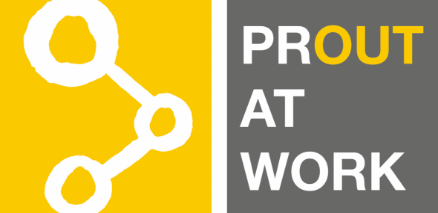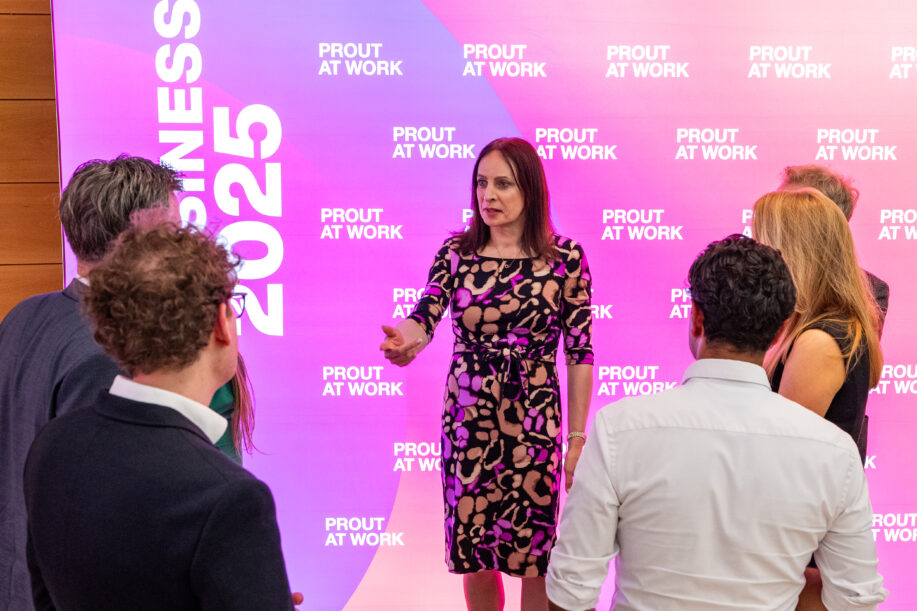
Caroline Farberger
“If you’re not actively including, you’re probably unconsciously excluding.”
A clear signal for diversity, equity and inclusion (DEI): many companies are restricting their DEI programs and activities and giving in to political pressure. This was also discussed by the guests at this year’s DINNER BEYOND BUSINESS.
Albert Kehrer, CEO of the PROUT AT WORK-Foundation, also emphasized the importance of queer diversity and equal opportunities in the world of work: “We at PROUT AT WORK are convinced that diversity in itself, but also queer diversity, is good for the company, because diverse teams are demonstrably better than homogeneous groups.”
At the foundation’s 8th DINNER BEYOND BUSINESS, the focus was on the commitment of companies and managers to queer employees: “We are convinced that different perspectives are essential for innovative ideas, and innovation is at the heart of everything we do. For 140 years, we have been guided by our guiding principles – respect, empathy, trust and passion – so that all employees can work with pride and appreciation. The DINNER BEYOND BUSINESS of PROUT AT WORK is a valuable platform to enter into a dialog about exactly this, to learn from each other and to jointly set impulses for more equal opportunities,” says Médard Schoenmaeckers, Chairman of the Board of Managing Directors of Boehringer Ingelheim Deutschland GmbH.
Caroline Farberger shared private insights in her keynote speech
Over 50 senior executives from major companies and institutions accepted the invitation to DINNER BEYOND BUSINESS 2025, including representatives from Accenture, BASF, Commerzbank, Deutsche Telekom, Deutscher Wetterdienst, IKEA, Linklaters, MSD, Novelis, OTTO and ZDF. The participants of the top-class networking event enjoyed an exclusive dinner at Boehringer Ingelheim’s headquarters in Ingelheim am Rhein. Albert Kehrer explained the background to DINNER BEYOND BUSINESS in his welcoming speech: “The idea for PROUT AT WORK was born 20 years ago, when the inclusion of queer people in business was not yet a big issue. We all see that politics in some countries are restricting diversity topics and the rights of queer people. That’s why we invited people to DINNER BEYOND BUSINESS 2025 to learn more about the queer side of business. To listen to leaders who are part of the queer community themselves. Supporting queer people in the workplace is much more than just supporting a marginalized group.
The highlight of the evening was the keynote speech by Caroline Farberger, Board Executive, Investor, G7 Advisor and Speaker, about her personal experiences as a trans* woman and CEO and diversity as a business advantage.
“I was born a boy, but back then I didn’t know about other gender identities. I realized that I only had one chance to live my life the way I am. I thought: What kind of role model would I be as a parent if I don’t live my life authentically?”
Caroline Farberger is the first high-ranking executive in the Nordic countries to speak openly about her transition. Until 2022, she was CEO at ICA Insurance, a well-known Swedish insurance company. She is currently a board member, investor and speaker.
“In Europe, we need to increase our productivity and competitiveness. With our stagnating population, we can only achieve this, if we really make full use of the diversity of our workforce. This requires a conscious decision by each individual to embed inclusion in their behavior and leadership style. If you don’t actively include, you are likely to unconsciously exclude.”
INsight
Many thanks to the host of this year’s DINNER BEYOND BUSINESS:
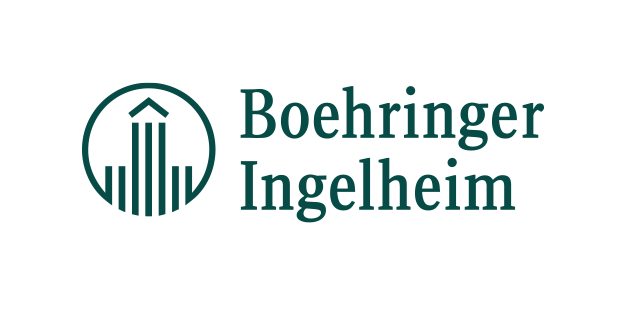
What trans*, inter* and non-binary employees and their companies should consider.
Since January 20, 2025, a new legal regulation on gender recognition in official documents (Executive Order 14168) has been in force in the US. This only recognizes the gender assigned at birth and thus represents a significant step backwards in the recognition of gender diversity – with concrete consequences for business trips by trans, inter and non-binary employees.
In June 2025, a federal judge’s ruling partially lifted the decree for the time being, allowing US citizens to once again receive passports with an “X” entry. However, it remains unclear what impact this ruling will have on travelers from abroad.
We have created a compact guide that summarizes the most important information, risks and recommended actions for business trips to the USA – both for companies and affected employees.
Why is this important?
- The new regulation can lead to visa problems, refusals of entry or even criminal prosecution.
- Employers are responsible for the safety of their employees on business trips – especially in sensitive legal situations.
- Early planning, internal awareness and legal protection are crucial.
Forward this OnePager internally and integrate it into your travel policy for the US to inform trans*, inter* and non-binary employees in particular about the changed regulations and to ensure the safest possible entry.
PROUT AMPLIFIER EDITION
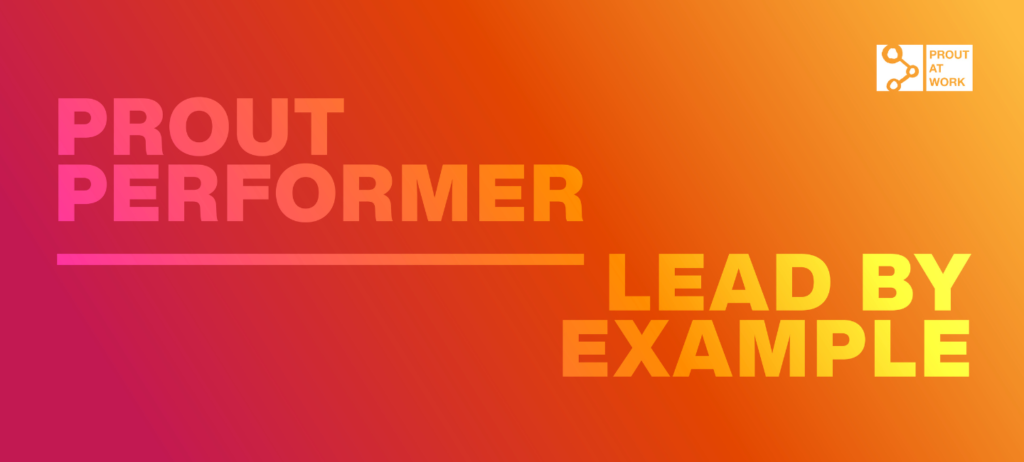
Diversity! But sustainable
On May 13, 2024, we were guests at one100 – the Randstad head office – in Eschborn. Despite spring thunderstorms over Frankfurt, we welcomed around 40 networkers to the first PROUT PERFORMER Networking Event 2024.
In an on-stage discussion with PROUT AT WORK board member Albert Kehrer, Frank Münze (Head of Talent & EDI&B), Carlotta Köster-Brons (Head of the Capital Office, National CSR Coordinator) and Bettina Desch (External Communications Expert) provided insights into the sustainability and EDI&B strategy at Randstad from various perspectives.
Afterwards, the guests had the opportunity – with a cool drink and a delicious snack in hand – to continue the exchange, talk about the challenges and opportunities of diversity work and share best practices from their own work contexts. Absolutely added value for the participants and super interesting for us too.
We were also very impressed by the guided tours of the impressive head office, where New Work is practiced in many different ways, from a flexible workplace to a fitness studio and a parent-child room, in order to meet the needs and requirements of employees in their day-to-day work.
Many thanks to all visitors, our hosts, co-organizers and the Randstad Pride BRG for their active support on site.
Impressions
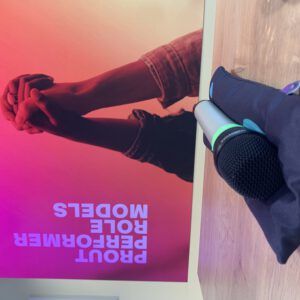
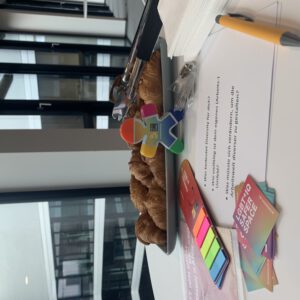
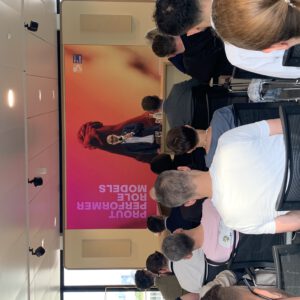
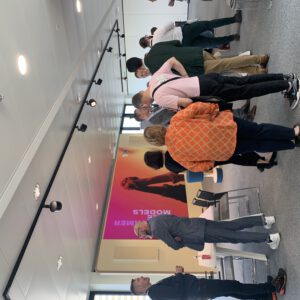
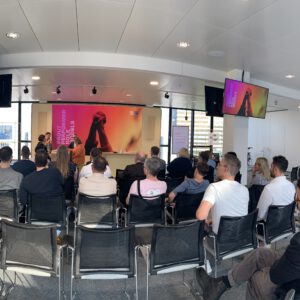
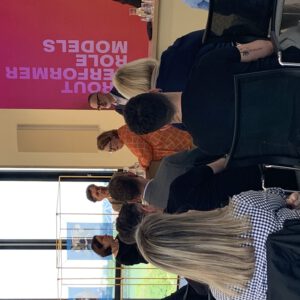
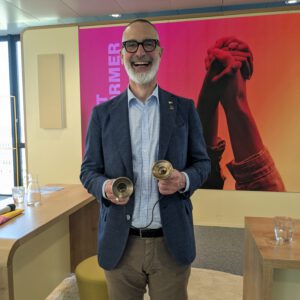
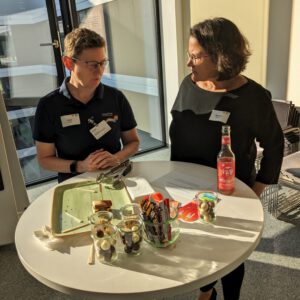
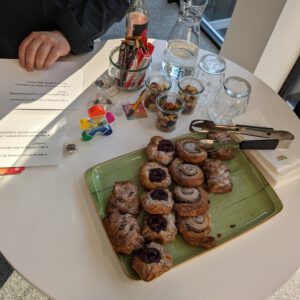
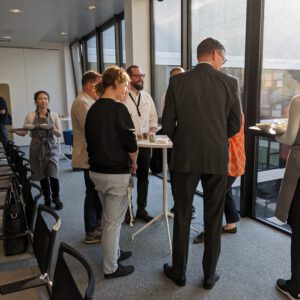
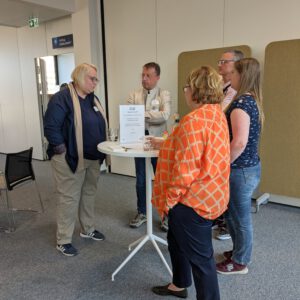
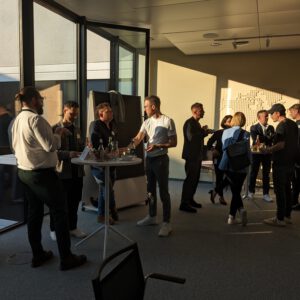
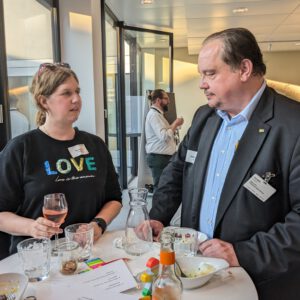
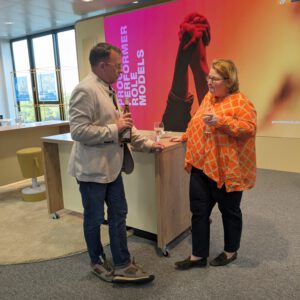
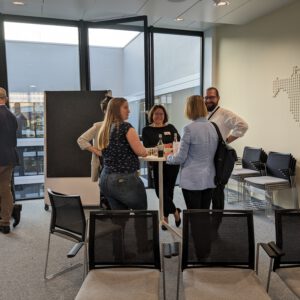
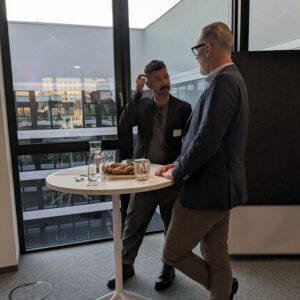
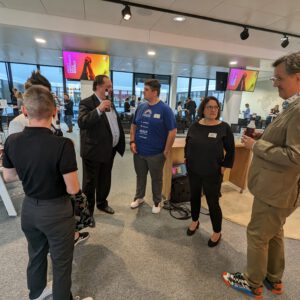
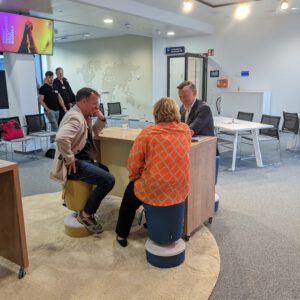
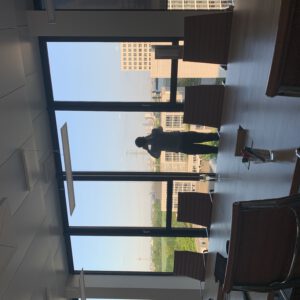
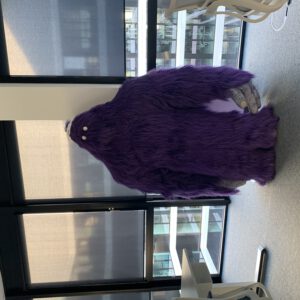
Kindly supported by
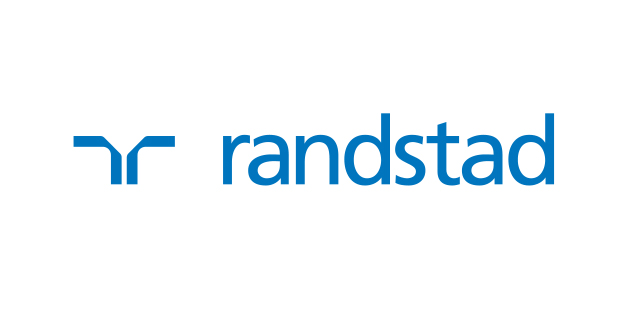

Empathy is key
The PROUT PERFORMER lists continue to spark great popularity. They offer a platform for queer role models in the workpalce and create visibility for committed people from very different fields of action. At the same time, the PROUT PERFORMER project thrives on active networking – on exchange in presence. After the successful kick-off event in 2022 (which took place in the RTL Audio Event Lounge in Berlin at the end of the year), we were delighted to be able to continue the event format in 2023.
Thanks to the support of our PROUT EMPLOYER Fujitsu, we were able to invite all the list winners and jury members from previous years to the Fujitsu headquarters in Munich at the beginning of December. In addition to finger food and drinks, an attractive supporting program awaited the guests.
After an inspiring opening by Gerd Jooss from the Fujitsu Pride Network, Florian Siekmann (member of the Bavarian state parliament and deputy parliamentary group leader of the Greens) gave a keynote speech on the status quo of the queer community and placed current developments and events vividly in a larger political context.
Afterwards, the guests listened to an exciting input from Magdalena Rogl (Diversity & Inclusion Lead at Microsoft Germany) about Empathy. Magdalena has been working in the online world for over 15 years. For her extraordinary career path from childcare worker to the digital industry, she was honored with the Digital Female Leader Award and as one of the “25 women who are revolutionizing our economy”. Her first book “MitGefühl – Warum Emotionen im Job unverzichtbar sind” was published in October 2022.
The following on-stage discussion with PROUT AT WORK CEO Albert Kehrer, various topics relating to emotionality at work and diversity were explored in more detail. Among other things, the two discussion partners addressed the question of how we can use a reflective, mindful approach to emotions as a compass to better understand ourselves and others. Or how important the role of role models is in making diversity visible in the company.
After the program, the guests had the opportunity to make themselves comfortable at bar tables and various seating areas in the attractive event location and to engage in informal discussions with one another over snacks and cool refreshments. After the event, we were delighted with the positive feedback from the participants and are already planning further PROUT PERFORMER networking events. Two are planned for 2024.
Impressions
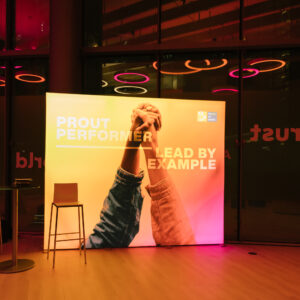
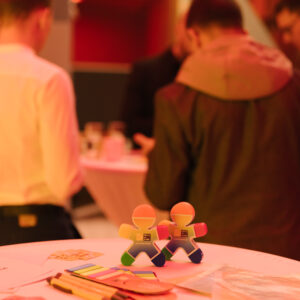
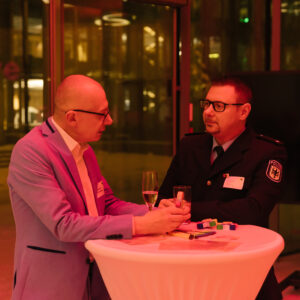
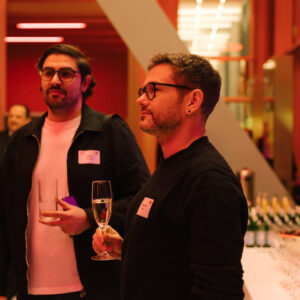
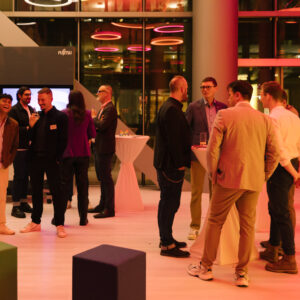
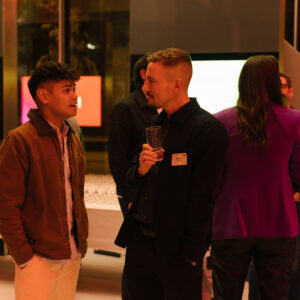
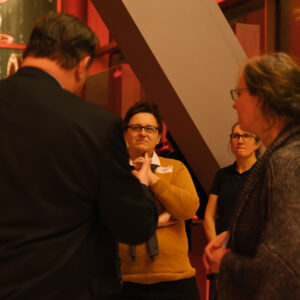
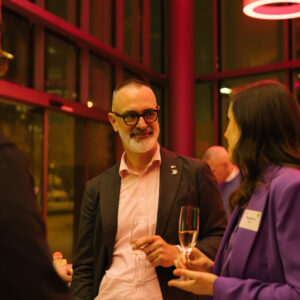
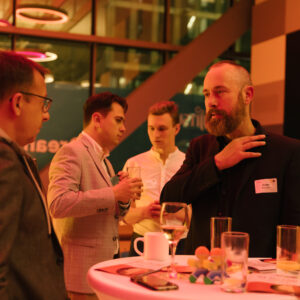
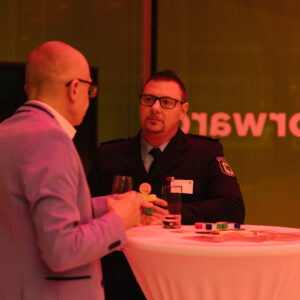
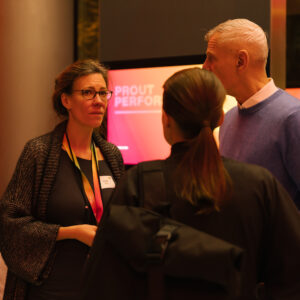
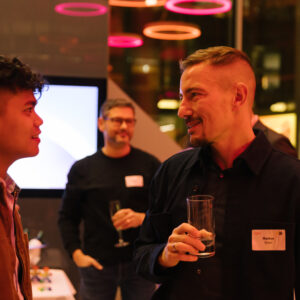
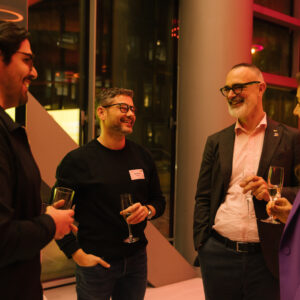
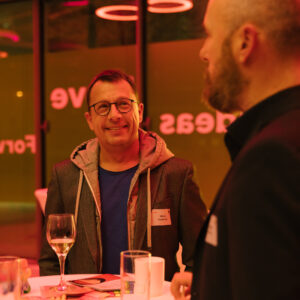
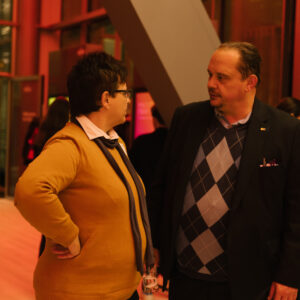
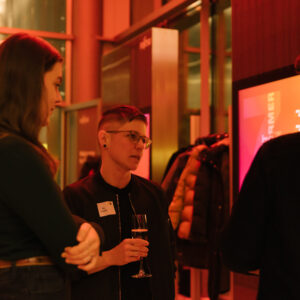
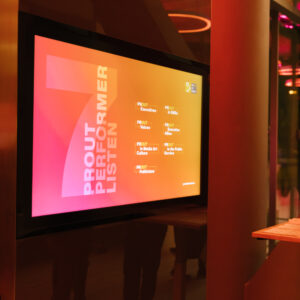
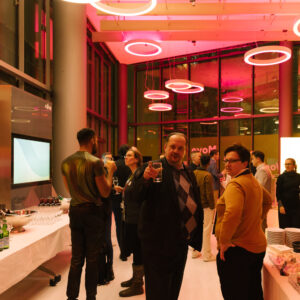
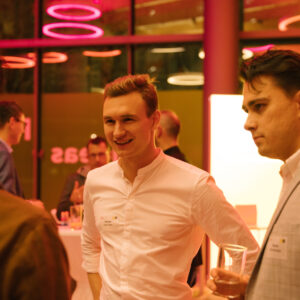
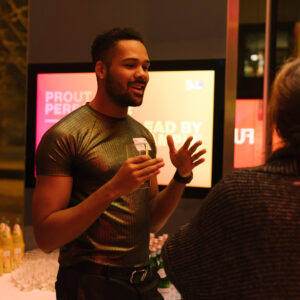
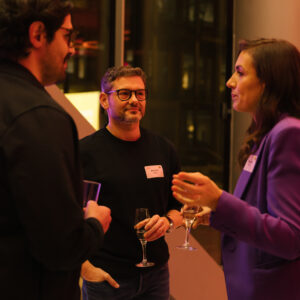
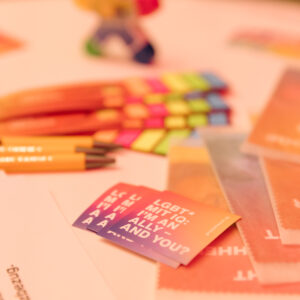
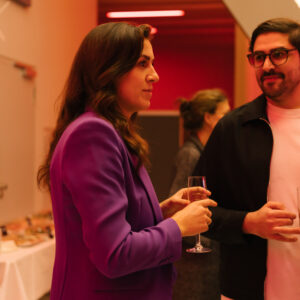
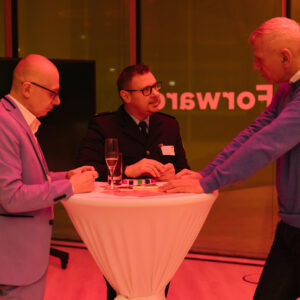
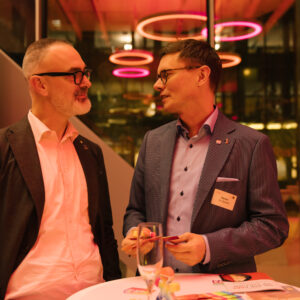
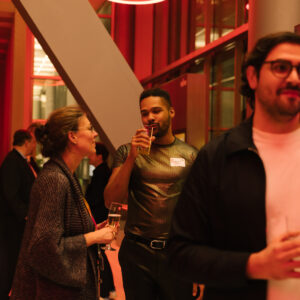
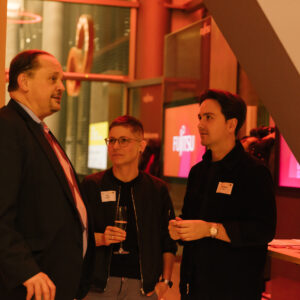
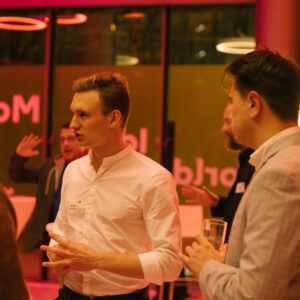
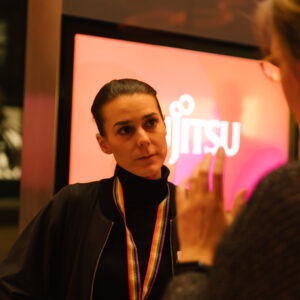
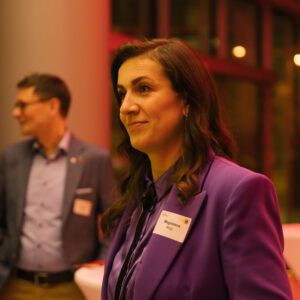
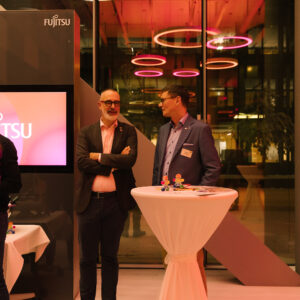
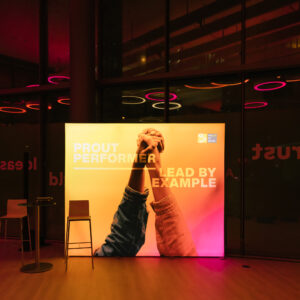
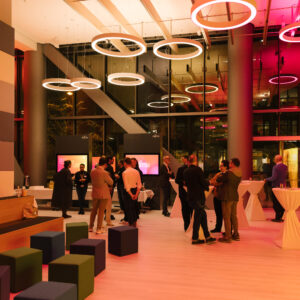
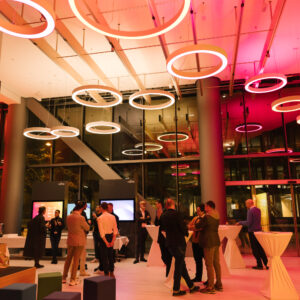
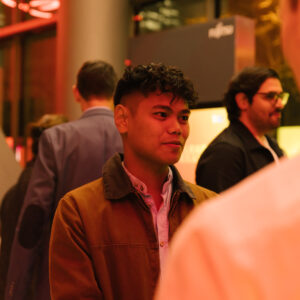
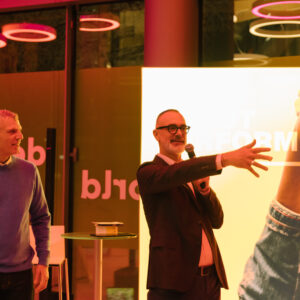
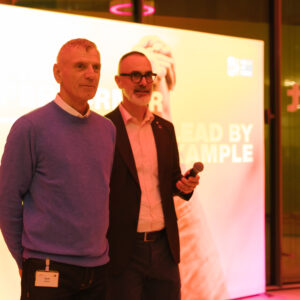
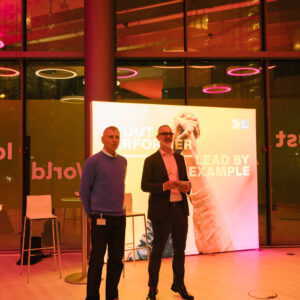
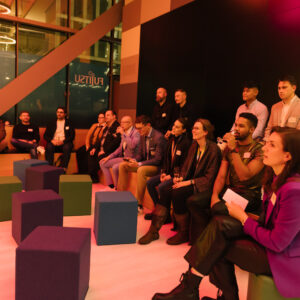
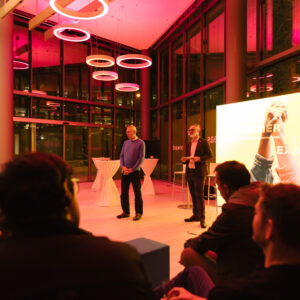
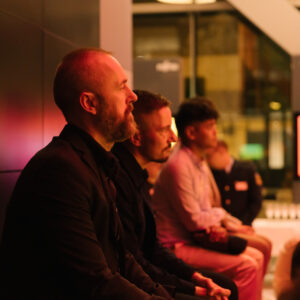
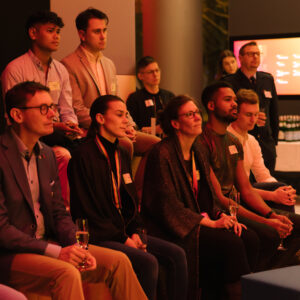
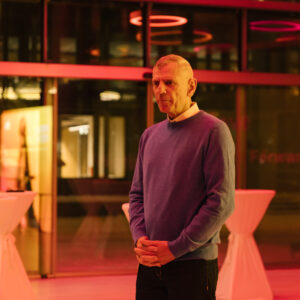
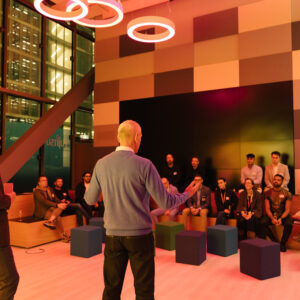
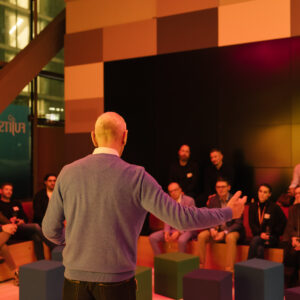
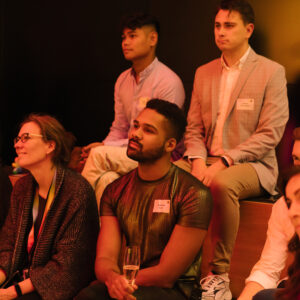
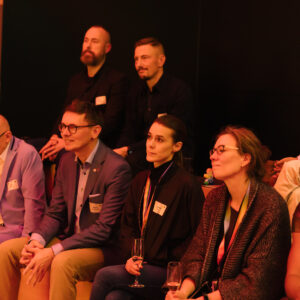
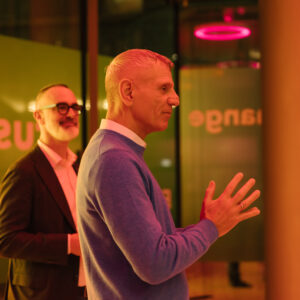
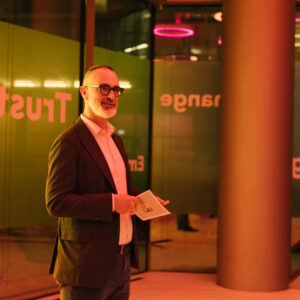
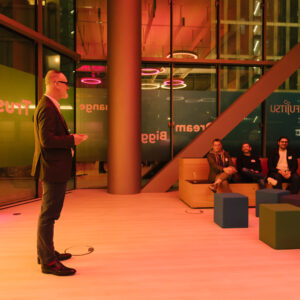
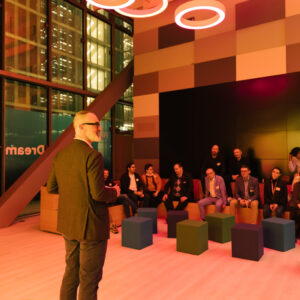
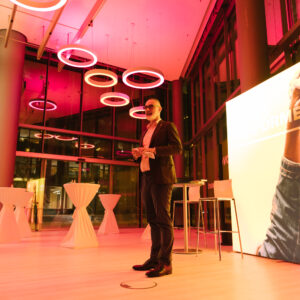
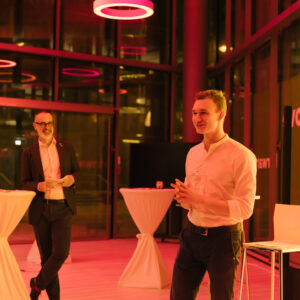
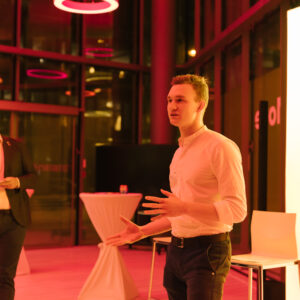
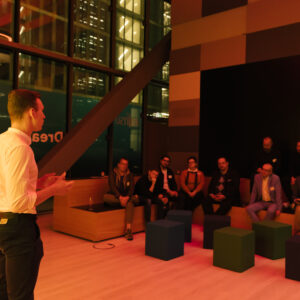
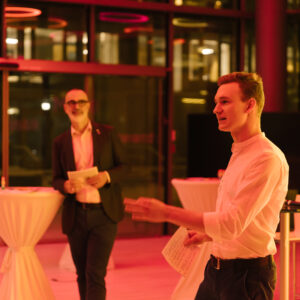
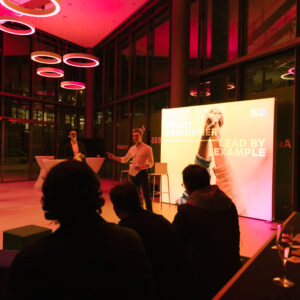
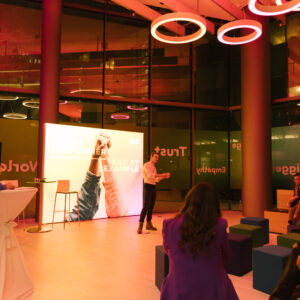
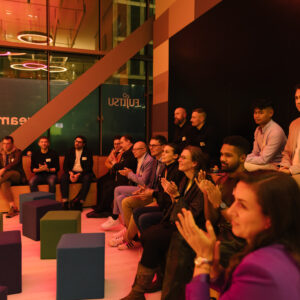
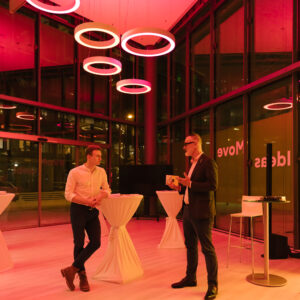
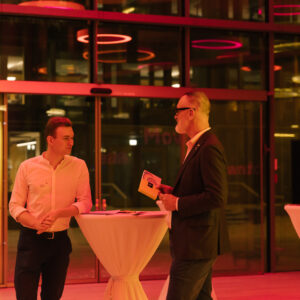
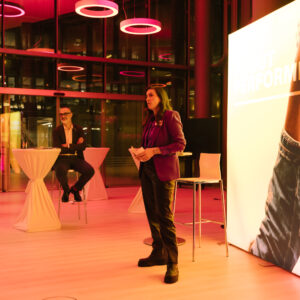
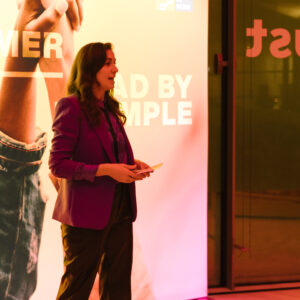
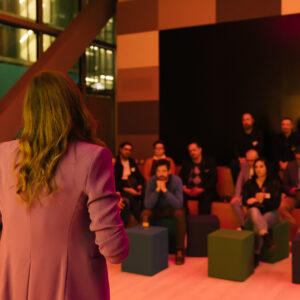
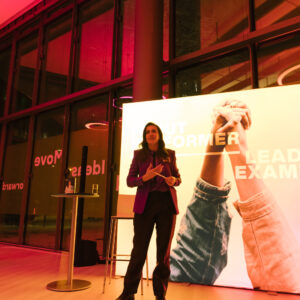
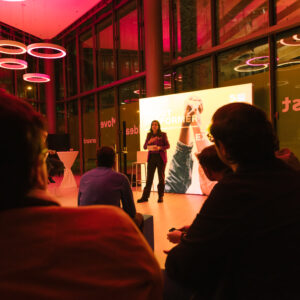
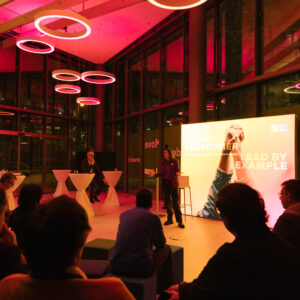
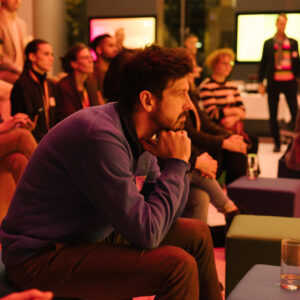
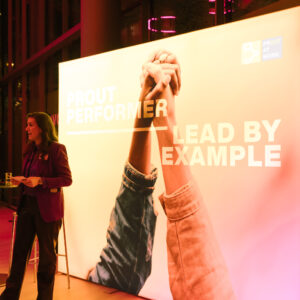
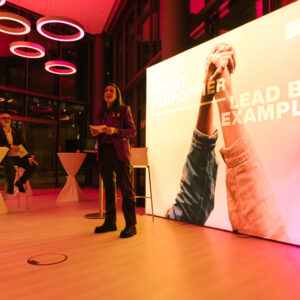
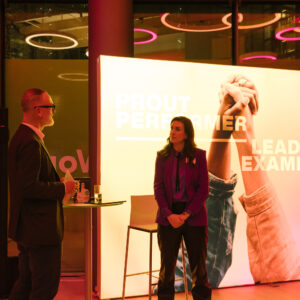
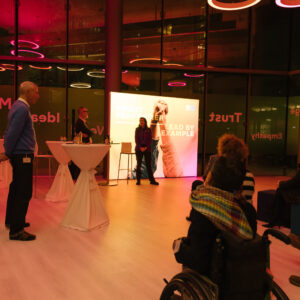
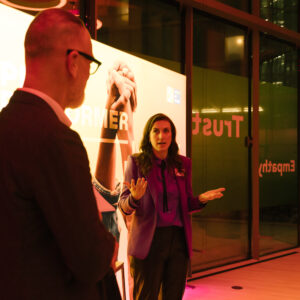
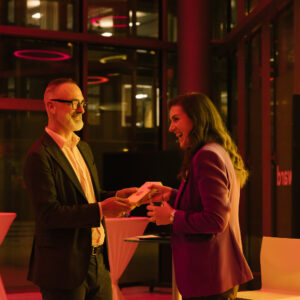
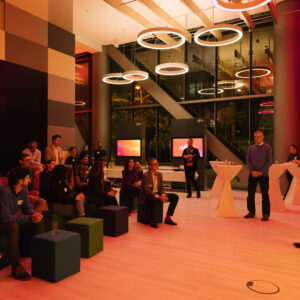
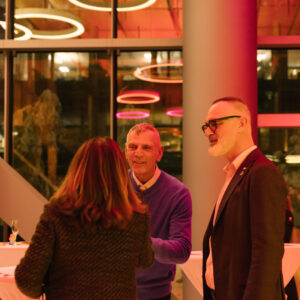
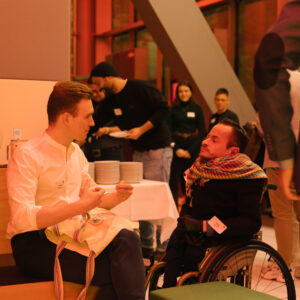
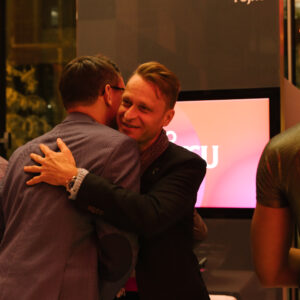
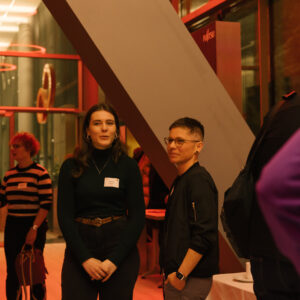
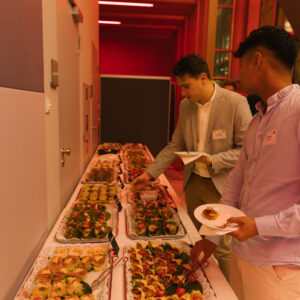

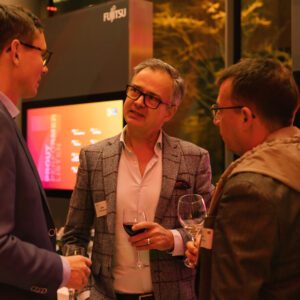
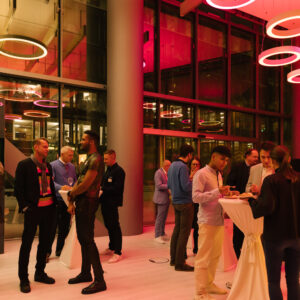
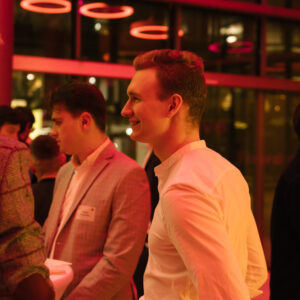
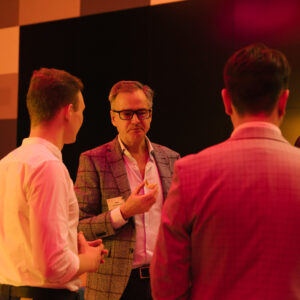
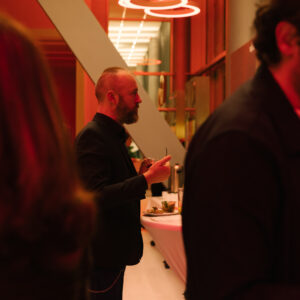
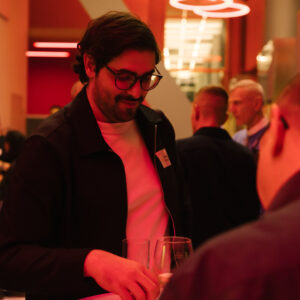
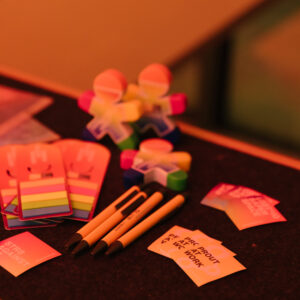
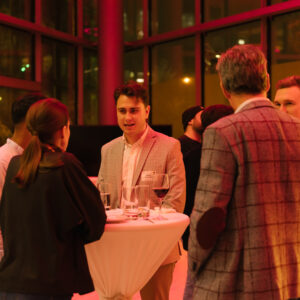
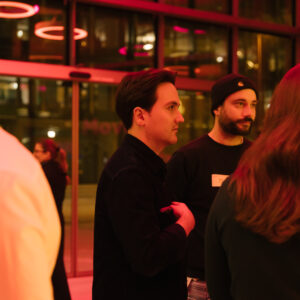
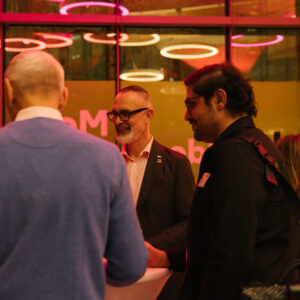
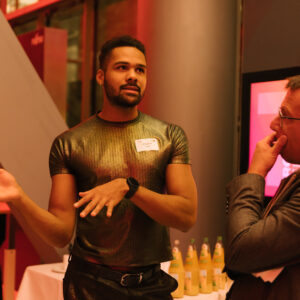
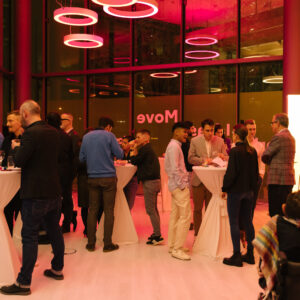
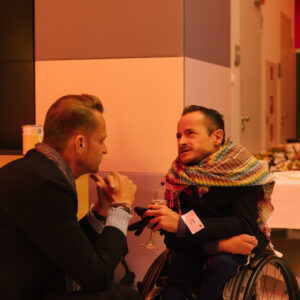
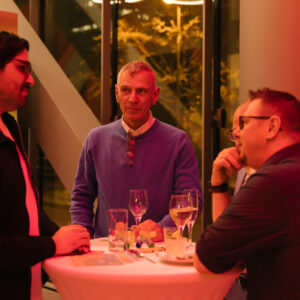
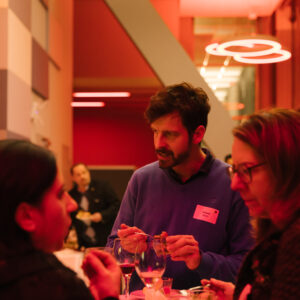
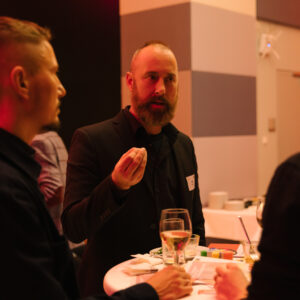
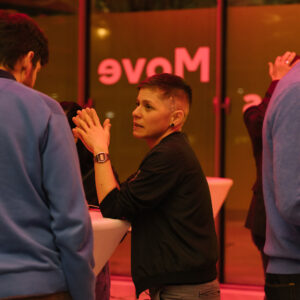
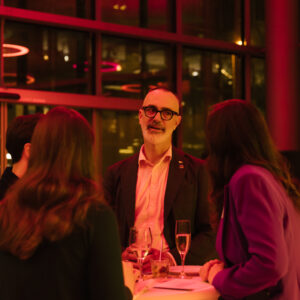
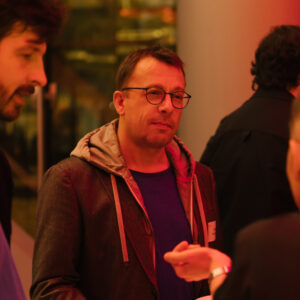
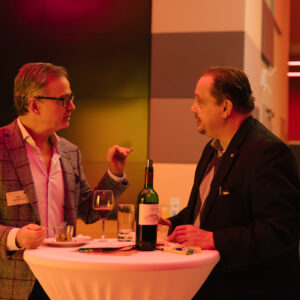
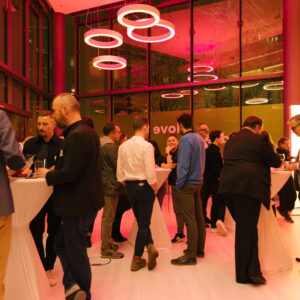
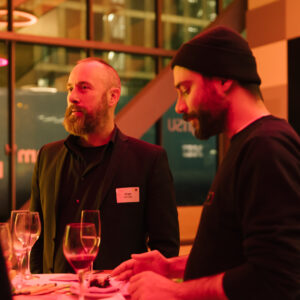
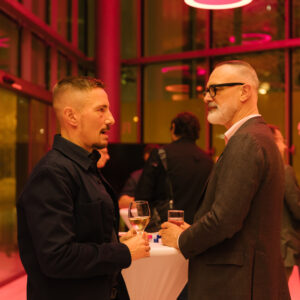
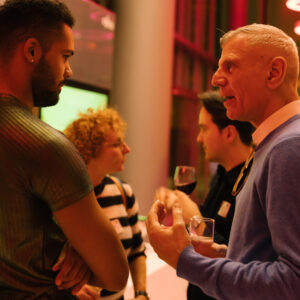
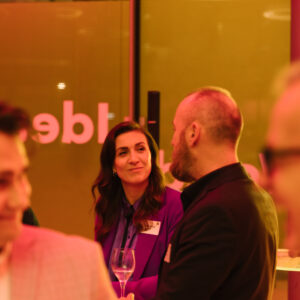
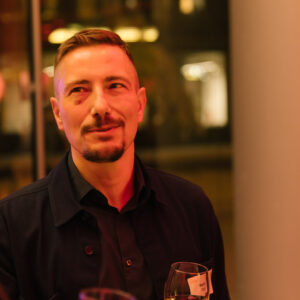
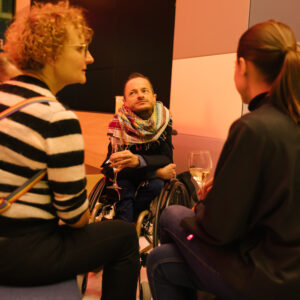
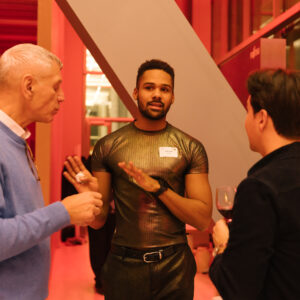
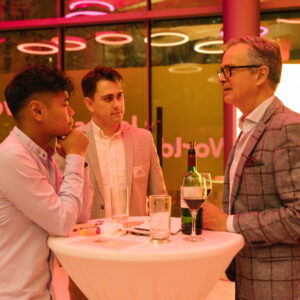
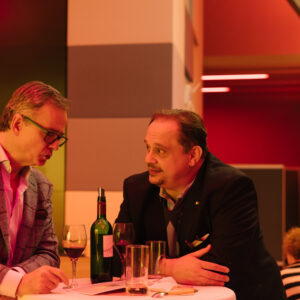
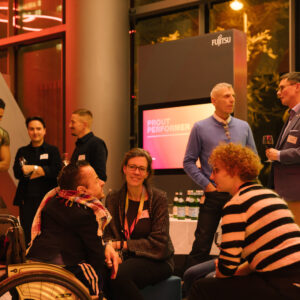
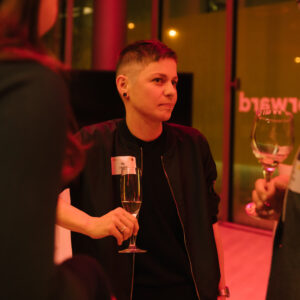
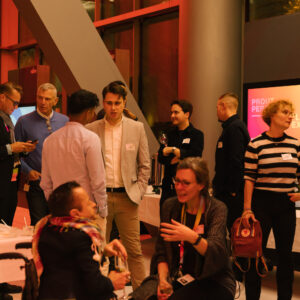
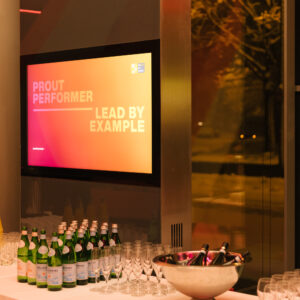
Credits: Francesco Giordano
Kindly supported by
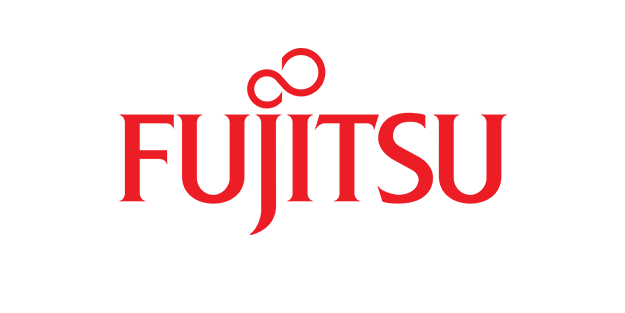
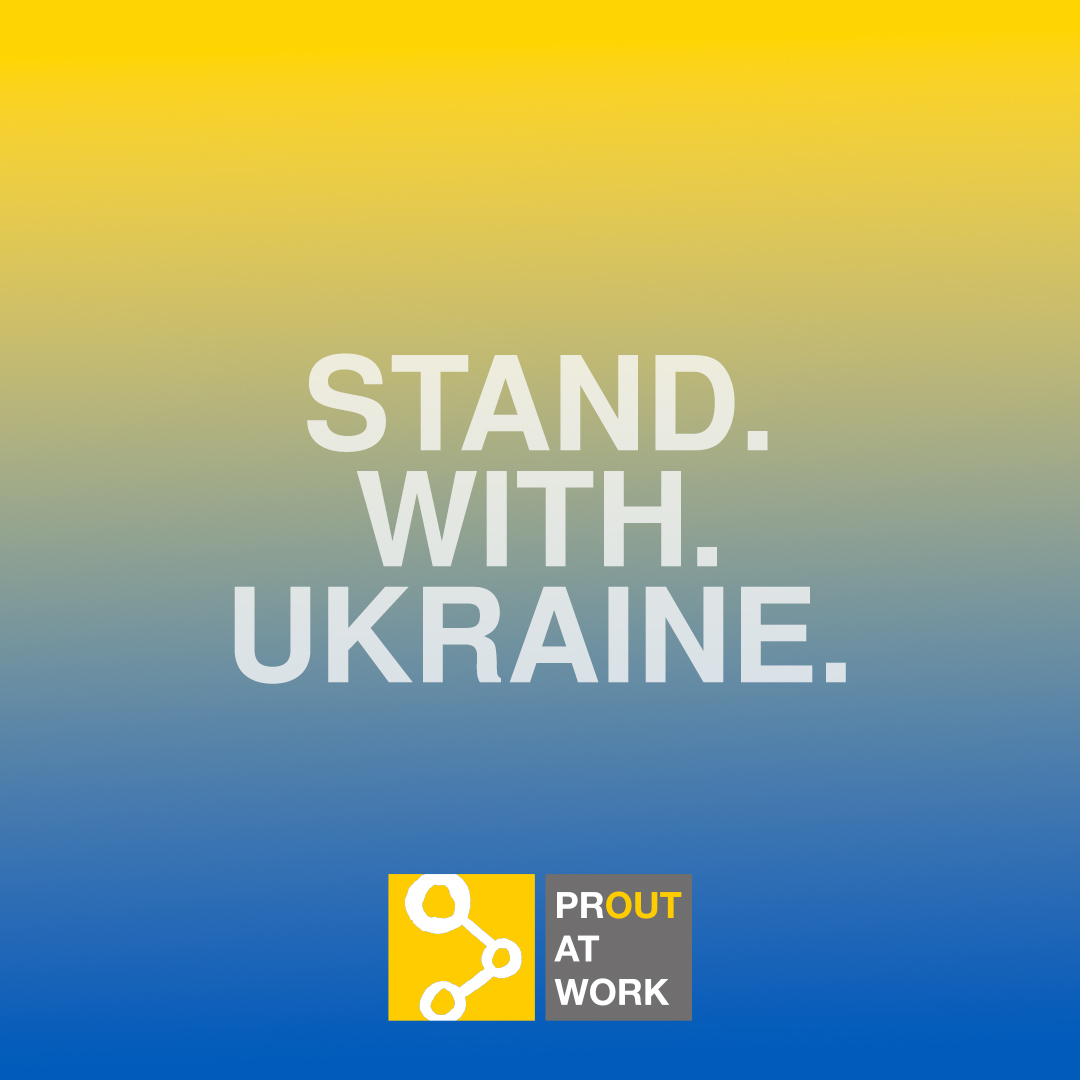
We stand in solidarity with all people in Ukraine who are affected by the Russian invasion and war. We know that the Russian regime is extremely queer-hostile and repressive. Therefore, if you would like to support, for example, the LGBT*IQ community or other associations and groups concretely and have the resources to do so, you are welcome to do so via the following pages.
Points of contact and donation options
Many people need immediate help in the current situation. That is why we have listed various donation options here. The list does not claim to be complete. Rather, it represents an excerpt that can be constantly supplemented.
Munich Kyiv Queer / Queere Nothilfe Ukraine
“The contact group Munich Kyiv Queer, formed in 2012 after the CSD in Munich, specifically advocates for the human rights of homo-, bi-, trans* and inter* people in Ukraine. The twinning between Kyiv and Munich is the basis for this.”
“Queere Nothilfe Ukraine is an association of representatives of various organizations from the LGBT*IQ community in Germany. We are in close contact with the human rights organizations on the ground, which use funds for the urgently needed care or evacuation of queer people. Every donation helps and is 100% earmarked.”
With their fundraiser they support activists who need money for transport, accommodation and food until they have found a safe place.
Quarteera e.V.
Quarteera e. V. is an association of Russian-speaking LGBT*IQ in Germany. With their donation campaign, the necessary funds for food, clothing, fees for legal aid, language courses for LGBT*IQ, will be financed.
Kharkiv Pride
KharkivPride is the largest LGBT*IQ Pride organizer in Ukraine, along with KyivPride, which created the event for the protection, equal rights and opportunities of LGBT*IQ people.
You have further input?
Feel free to contact us with specific places to go and ways to donate,
that we can include on the list.
Our new team members: Sandra Stadler, Frauke Becker and Philipp Rossi. Read more about our new employees.
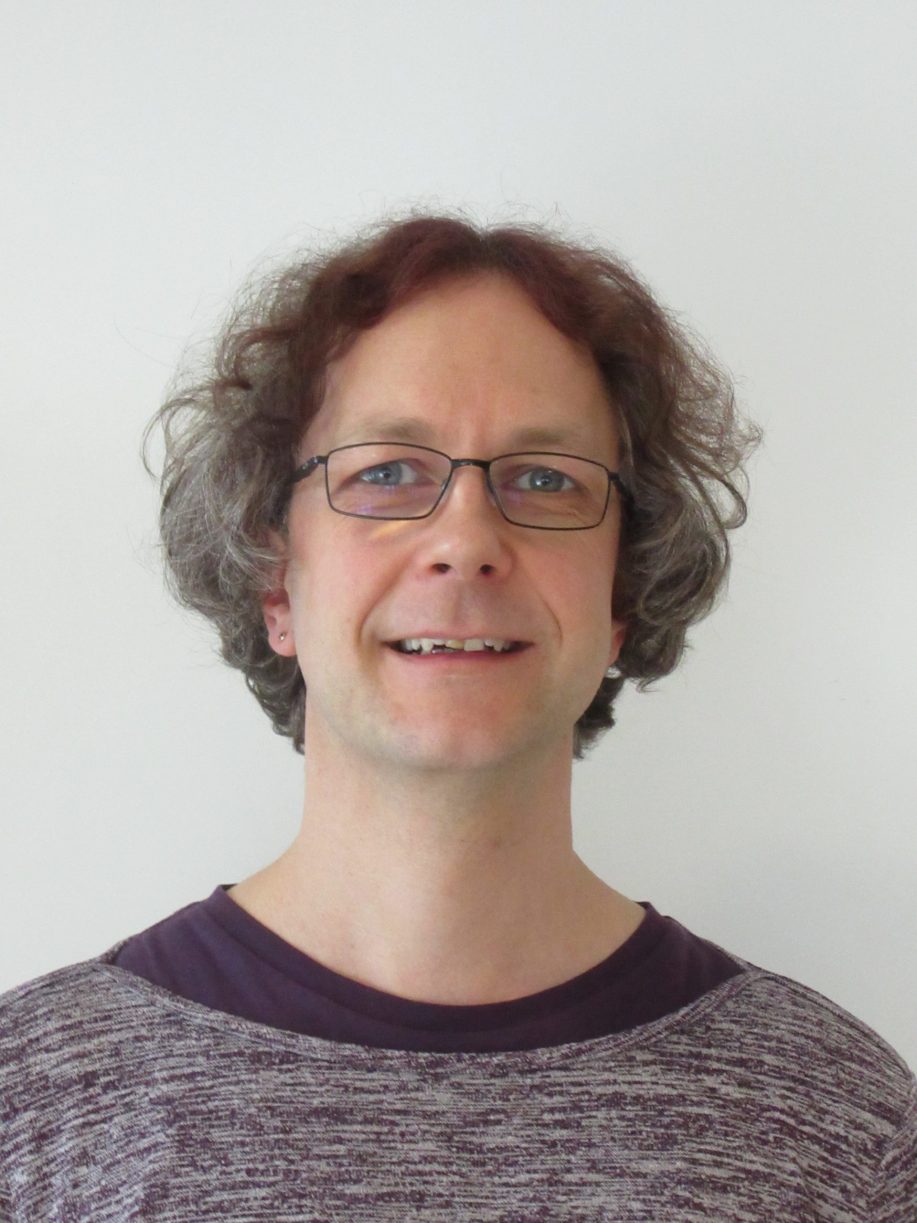
A talk with… Nils_Séline “Nica” Schächtele
“Let’s be as courageous as possible. Intersexuality is still a big taboo topic.”
Nils_Séline “Nica” Schächtele was born in Freiburg im Breisgau and studied electrical engineering and information technology at Karlsruhe Institute of Technology. Both before and while studying this subject, Nica was interested in professional sound and acoustic engineering. In 2002, the next stop on Nica’s journey was Straubing, where Nica joined EVI Audio GmbH (a subsidiary of Bosch’s Building Technologies business unit since 2006) as a systems test engineer.
You refer to yourself as “divers” (non-binary). What experiences have you had at Bosch with this identity?
Nils_Séline “Nica” Schächtele: DIVERSITY has been an important topic at Bosch for some years now. I have always liked the term “divers” very much because I have intersex as well as transgender-androgynous and bigender characteristics, and “divers” covers all of them. The change in the law creating the third gender option in Germany has really pushed things forward simultaneously for Bosch and for me. This year, we started to take many diverse steps together and to have lively discussions – a win-win situation for all of us. Sometimes, I jokingly refer to myself as “Bosch’s token non-binary person”. The feedback from my colleagues at the office was cautiously positive, and I got a lot of respect for being open about my gender. There was also a bit of confusion, in particular due to my two additional first names Séline and Nica. If I brought up this subject myself, the question I heard most frequently was: “Can I still call you Nils?” – which I’m OK with.
What does it mean to you to be an intersex person in our society?
Nils_Séline “Nica” Schächtele: It means belonging to a tabooed minority that is largely invisible. Sometimes I feel like we’re aliens from a Science Fiction movie: “So people like that actually exist?” “Yes, they do!!” Noticing that someone has both typically female and typically male characteristics, or finding out more details about this, or even realising that someone doesn’t fit into any traditional category, makes many people uneasy. It doesn’t match the binary view of the world that is instilled in us. It takes a lot of patience and stamina to overcome this hurdle.
“However, the biggest challenge is, and continues to be, plucking up the courage to speak openly to others.”
When did you come out in your workplace? And what challenges did this pose at your company and with your colleagues?
Nils_Séline “Nica” Schächtele: I began to come out at Bosch during a telephone call with Olaf Schreiber – the spokesperson for the company’s LGBTIQ network RBg – and then in a telephone call about the “third gender option” with Anja Hormann from the central Bosch Diversity Team. After that, I gradually informed my direct colleagues at the office, my carpool group, my supervisor and the local HR department. A wonderful video made by colleagues for colleagues on IDAHOBIT inspired me to have my first name changed to Nils_Séline in the internal company address book. It is written with the so-called “Gender_Gap” to visualise the gender continuum between male and female. I dedicated my first blog entry in the internal network to this subject and sometimes I was moved to tears by the approval I received from all over the world. On Diversity Day, our office organised a Diversity Business Lunch which I attended and where I was able to talk about non-binary gender aspects with those present. Generally, I was pleasantly surprised at how much good will and appreciation were shown to me at all levels. However, the biggest challenge is, and continues to be, plucking up the courage to speak openly to others. Not to mention the IT side, where the only options you have in many areas are male and female.
What advice would you give to intersex people planning to come out?
Nils_Séline “Nica” Schächtele: Take it slowly – small steps are best, so give yourself time. Coming out as an intersex person requires a great deal of care and courage. Things can quickly take a wrong turn. I recommend beginning with people who are not quite so close to you. After a bit of practice, you’ll find it easier to talk to your family and close friends. And get in touch with LGBTIQ allies – they’re open-minded and make very good listeners. Talking to allies will make you feel better and boost your self-confidence.
“I’d like this to be matched by a more relaxed approach – as if you’re talking about the weather or what you’re going to cook for dinner.”
What are your hopes with regard to the visibility of intersex persons in particular and the LGBTIQ Community in general at your company?
Nils_Séline “Nica” Schächtele: Let’s be as courageous as possible. Intersexuality is still a big taboo topic. In many places, we as a society have yet to take a clear stand against hastily begun hormonal treatment or surgery which is not medically necessary. The few who are open about their identity are inundated with letters and requests from all sides. But there are other important topics, too. That’s why I’d like to see many people – in particular many allies – spread the message that the human body doesn’t just develop into a man or a woman and that gender actually covers a broad spectrum. I’d like this to be matched by a more relaxed approach – as if you’re talking about the weather or what you’re going to cook for dinner. I experienced this on Stuttgart’s commuter trains recently and it worked really well. As regards our LGBTIQ Community at Bosch, I hope that many people will join us in the years to come, the proportion of allies will grow steadily, and gender diversity will gain an even higher profile. This applies to intersex, transgender and queer identities topics of any kind.
Big Impact Initiative Award:
be.queer LGBTIQ and allies at Bertelsmann
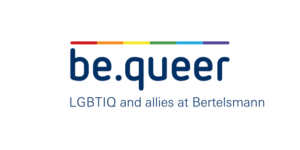
This year, the award in the Big Impact Initiative category went to Bertelsmann’s be.queer network. To mark this year’s Coming Out Day, the company published creative contributions designed to make its own employees more aware of the topic of coming out in the workplace. For example, rather than focusing just on their own group, the network used the project as an opportunity to get several generations and departments of the company involved. To this end, they initiated the first cross‑division trainee project and thus prompted several companies to consider a change in perspective. “We have a social responsibility and are a powerful instrument for the population at large. The video allows us to draw attention to the topic in society, too, using one of our trade marks – the moving image.
Rising Star Award:
MORE* Queer@OttoGroup
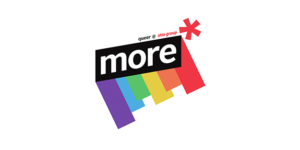
The Otto Group’s MORE* network won the Rising Star Award 2019. Founded as recently as late July 2019, the network has adopted a clear role within the company with the familiar objective of bringing employees together – whether they are queer, allies or simply curious. They actively take a stand in favour of LGBTIQ diversity and against discrimination, and lend a voice to those who have not (yet) found theirs. They have already succeeded in getting the rainbow flag permanently positioned between the Group’s flags and have also ensured that, in future, employees will make their way into work via a specially created Pride Walk. Over 200 employees are now part of the network. And the clear message from all involved is: “We are convinced that in public debates corporate groups have a growing social responsibility and must actively take a stand in favour of diversity.”
Global Leader Network Award:
dbPride – Deutsche Bank’s LGBTQI network
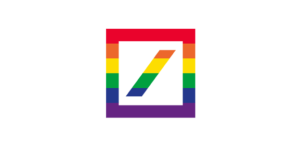
Deutsche Bank’s dbPride network received the Global Leader Network Award 2019. Thanks to impressive activities in various countries, they demonstrated how they promote equal opportunities for LGBTIQ people. They use targeted campaigns not only to advocate actual change for the better within their own corporate culture, but also to play an active part in global efforts to change the political and societal situation of LGBTIQ people. They were actively involved in the drafting of the LGBTI Standards of Conduct for Business and are among the most committed members of various initiatives, declarations and statements. Determined and effective, this network ensures that their company translates its corporate philosophy into deeds.
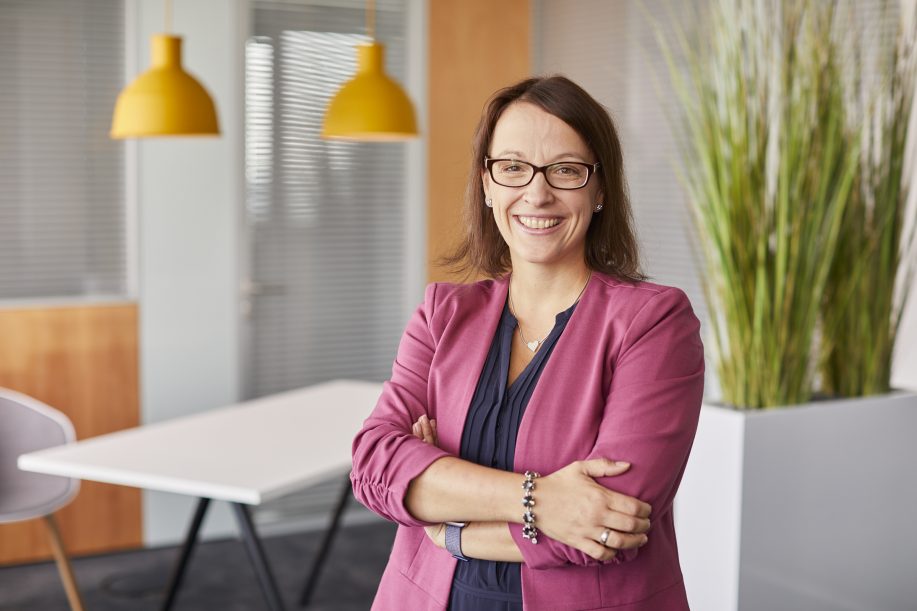
PROUT EMPLOYER METRO
“My goal is that in ten years we no longer have to talk about diversity and inclusion because both of these things have simply become part of life – in all areas of society.”
Laura Halfas worked for various trading and consulting companies in the areas of purchasing, distribution and IT before she joined METRO in 2008. She started in the Supply Chain Management IT area and then moved to Customer Marketing IT. Seven years later, Laura Halfas, who has a bachelor’s degree in trade and commerce, became the team leader of eCommerce, Marketing Operations & Traceability. At the end of 2017, she ultimately took over the position of Head of Corporate Responsibility. She focuses on diversity and inclusion as well as corporate citizenship.
Ms Halfas, METRO AG is clearly a very active PROUT EMPLOYER. In what specific ways does METRO champion more equal opportunities for LGBT*IQ people?
Laura Halfas: METRO was one of the first wholesalers to sign the UN Free and Equal Standards of Conduct for Business, which ensure that all employees are “free and equal”. We also have METRO Pride, a very strong internal network. This year, the Diversity & Inclusion Days took place for the first time at our campus in Dusseldorf to spark our employees’ interest in the topic of diversity. And METRO was again represented at Sticks & Stones in 2019, the largest LGBT+ careers fair in Europe.
Which initiatives are you personally particularly proud of?
Laura Halfas: We at METRO initiated a position paper on the issue of blood donation because the guidelines are discriminatory. For example, homosexual men are generally assumed to engage in risky behaviour irrespective of their actual sexual behaviour and their life situation. It would be great if, together with PROUT AT WORK, we could achieve a position paper that was adopted by German businesses. That’s why I would again like to take the opportunity to invite businesses to participate in this initiative.
“Working for equal rights is what drives me. At first, I only focused on gender equality, but then I realised that there are many areas in which there is no equality.”
As Head of Corporate Responsibility, it is your duty to ensure that METRO AG fulfils its corporate responsibility for the environment and society. In your view, what responsibility do businesses have when it comes to equal opportunities for LGBTIQ people?
Laura Halfas: We are a people business and we work with people throughout our entire value chain. As a global company with more than 150,000 employees in 36 countries, it’s our duty to ensure that all people are treated equally and not discriminated against – be they METRO employees, service partners, suppliers or customers.
In what specific areas are you hoping for support from PROUT AT WORK?
Laura Halfas: I and a lot of my colleagues appreciate the networking and dialogue with PROUT AT WORK. The foundation has considerable experience and know-how. For example, it constantly provides us with new impetus to drive forward cultural change within METRO and make our jobs even more open and less susceptible to discrimination. What’s more, our activities are becoming visible outside the company. And as I said, our motto when it comes to the position paper on blood donation is: together we can do it!
You immediately agreed to an interview with us – thank you again! To what extent are equal opportunities for LGBTIQ people an issue that is close to your heart?
Laura Halfas: Working for equal rights is what drives me. At first, I only focused on gender equality, but then I realised that there are many areas in which there is no equality. My goal is that in ten years we no longer have to talk about diversity and inclusion because both of these things have simply become part of life – in all areas of society. However, there are still many areas in which LGBT+ issues need to be addressed. People are still being discriminated against. I want to change this. Everyone should have the opportunity to be who they are.
Ms Halfas, many thanks for talking to us!
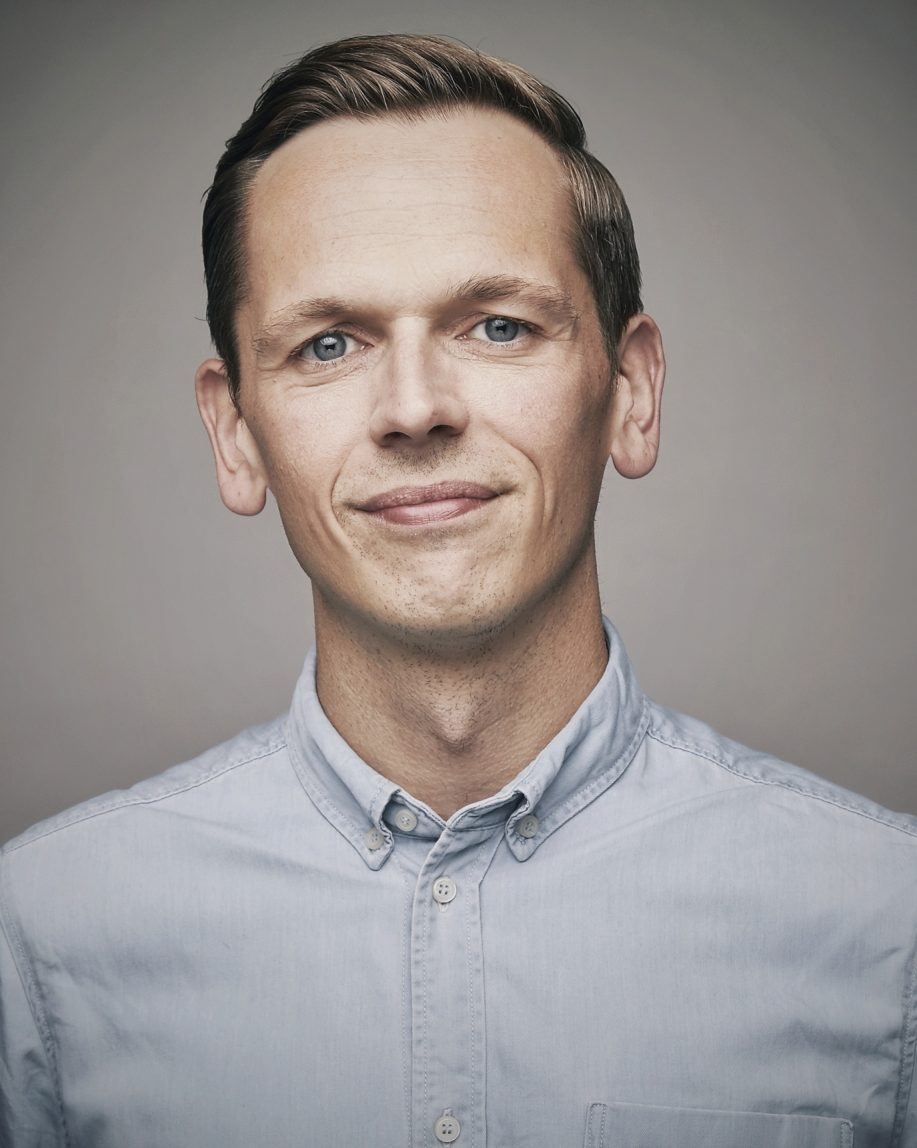
PROUT EMPLOYER OTTO
“That’s why for me, MORE* is a very clear signal to the outside world – a signal that shows that in the Otto Group we will […] continue to be a liberal-minded, tolerant corporate group of many colours.”
Ingo Bertram is OTTO’s press spokesman and co-founder of MORE*, the Otto Group’s LGBTIQ network. Previously, Mr Bertram, who was born in Bremen, was head of Corporate PR & Content in the corporate communication department of the logistics service provider Hermes and worked as a PR consultant for international brands and groups.
You’re a very young network – only founded in 2019. Tell us how your initial idea led to the network being formed and how the first activities came about.
Ingo Bertram: The Otto Group has long been a supporter of diversity – explicitly including LGBTIQ. A good example of this is our cooperation with Hamburg Pride, which started in 2017. Nevertheless, the Group had no official structure that specifically allowed LGBTIQ people to join together and that promoted queer topics and coordinated activities. Nor was there a central voice representing the interests of our queer colleagues. This is precisely why in May 2019 we established MORE*, a queer network in the Otto Group. At the end of July, to coincide with Hamburg Pride Week, we officially launched the network – and the first thing we did was turn the OTTO campus into a sea of rainbows, including a rainbow zebra crossing and a huge rainbow cake, through a range of activities. Incidentally, the zebra crossing is now a permanent feature on our campus, as is the rainbow flag in front of our main entrance. The cake, however, was gone within two hours!
“Whether MORE* will be a lasting success in the Otto Group depends primarily on how deeply we can anchor our vision in the group and in the mindset of our staff.”
Which challenges did you face? Where did you get support from?
Ingo Bertram: Right from the time we established the network, we received a delightful amount of encouragement and support, not only from direct colleagues, but explicitly also from the highest management levels. I sometimes had the impression that many people were merely waiting for a queer network to finally be launched. Ultimately, our biggest challenge was therefore not only to officially establish the network within a few weeks, but also to organise a launch that met our own high standards – and to do all this without neglecting our main jobs. I was blown away by the fact that we had already got more than 150 MORE* supporters within 48 hours of the official launch on 29 July.
With Gesa Heinrichs as Executive Sponsor, you have an enormously committed person on board. To what extent does this help you in your work?
Ingo Bertram: Whether MORE* will be a lasting success in the Otto Group depends primarily on how deeply we can anchor our vision in the group and in the mindset of our staff. A prerequisite for this is that we can motivate as many colleagues as possible to help shape the work of our network proactively and drive forward ideas. Of course, it’s helpful for MORE* to also have committed members and supporters at higher management levels, such as Gesa Heinrichs or our patron Katy Roewer, the member of OTTO’s management board with responsibility for Service & HR. This gives us better access to top management and can make coordination easier. What is ultimately decisive, though, is that our ideas, visions and wishes take hold within the company, irrespective of any hierarchies. And for this goal we need every single person.
Why is supporting LGBT*IQ people a matter that is close to your heart?
Ingo Bertram: I’d like to answer this question both from a personal view and from the perspective of society as a whole. Speaking personally, the answer is obvious because – just like many other initiators and supporters of MORE* – I am queer myself and naturally I want to work in a company that treats its employees equally without reservation, regardless of gender, religion, skin colour or sexual identity. However, this always works best when there are people in a company who are committed to diversity and set a good example. This is precisely what we want to do with MORE*.
On the other hand, what’s at least as important to me is the appeal such a commitment can have beyond one’s own job. In Germany and in many other countries, we are experiencing a partial rollback of society. Right-wing populist ideas are gaining influence, mostly at the expense of minorities, and these include not only refugees, Muslims or Jews, but also queer people. I can’t and won’t stand by and watch this happen, either in my personal life or at work, and this is how many others here feel, too. I am convinced that in this discourse, companies have a growing social responsibility and must actively take a stand in favour of diversity. That’s why for me, MORE* is a very clear signal to the outside world – a signal that shows that in the Otto Group we will not surrender to this rollback and will continue to be a liberal-minded, tolerant corporate group of many colours.
What are the next steps, and what are your wishes and goals for the network?
Ingo Bertram: Globally, more than 50,000 people work for the Otto Group. The biggest challenge and thus the most important goal for us will be to reach as many of these people as possible. This sounds trivial at first, but it isn’t. In the coming months, we will therefore begin by redoubling our efforts to build up an internal network between our more than 120 group companies, both digitally and using regular dialogue formats. At the same time, we want to promote awareness of queer topics internally in various areas, whether it’s in marketing and purchasing, in our online shop teams or in the recruiting process. I think we’re already on the right track.
